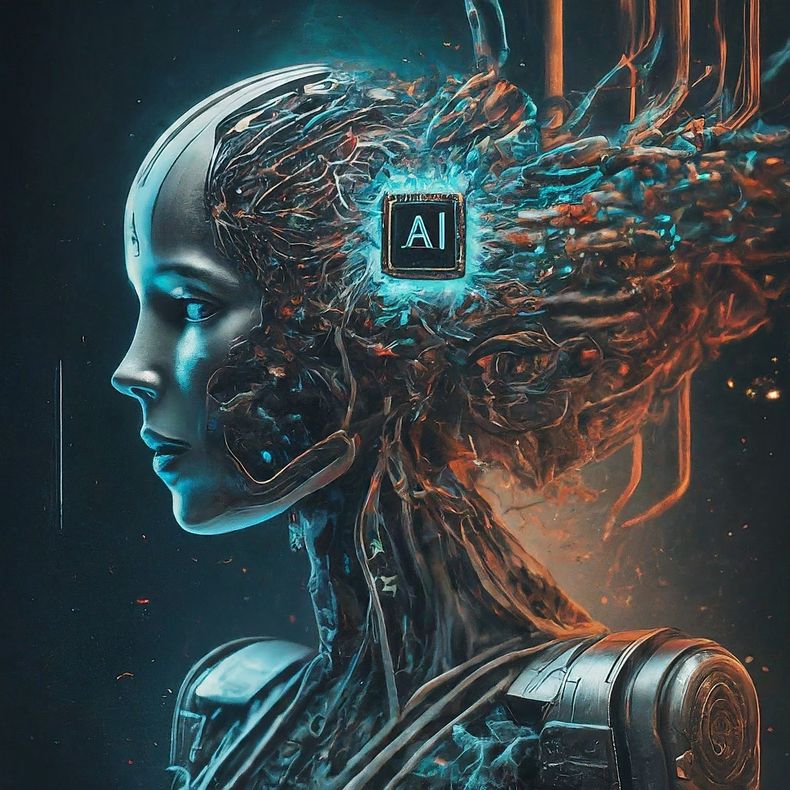As with any revolution, we cannot predict what the future will bring. Of course, that doesn’t stop ‘AI specialists’ from painting beautiful visions of what will happen and when. And these stories are repeated often, as people crave predictability. One thing I’m quite sure about is that many of the consequences of this radical change are not even considered right now. So I have no idea what a world with artificial intelligence will look like, which is why I stubbornly avoid making predictions or speculations. However, I can look at past revolutions—like the digital one—and offer a few hypotheses about how the markets and companies will be impacted by the upcoming transformation.
1. Most of the effort will go to waste.
During the digital revolution, any wild idea had a chance at funding. The dot-com crash in 2001 led venture capitalists to realize that the most valuable assets of many companies were their kitchen furnishings. Not because they didn’t invest in software or servers, but because they spent more on office décor. So far, Artificial Intelligence has become an efficient way of extracting money from investors. In recent months, all major companies and a huge number of startups have announced AI programs. In many cases, the same results can be achieved more easily and cheaply using traditional methods, but it wouldn’t look as good from a marketing standpoint. That’s why I think most of these new ideas will fail—but we don’t yet know which ones. Nor do I know how much this bubble will grow before collapsing. Though we’re beginning to see some cracks, like Microsoft’s stock price drop at the end of July 2024, after it announced a 35% year-on-year increase in infrastructure spending for AI.
The companies that do succeed will probably bring us…
2. Services We Don’t Know We Need
Before the digital revolution, we didn’t even know we might want to know what our friends had for dinner, spend an evening watching shorts with cats, or plan vacations without visiting a travel agency. It’s highly likely the AI revolution will bring services most of us don’t yet realize we need. But soon we won’t be able to live without them.
Which will lead to the emergence of…
3. AI-Native Companies
The digital revolution gave rise to Digital-Native companies like Google, Facebook, and Amazon. They developed completely different ways of thinking, operating, decision-making, product development, marketing, and sales. They are more adaptive and thus better suited to a rapidly changing market. I believe we’ll see the same with AI-native companies with artificial intelligence in their DNA — for whom a new way of working will feel completely natural.
Consequently, this will cause…
4. A Shift in Market Power
Of the ten largest companies in the world, four were founded after 1990, and seven are tied to digital technologies. This suggests a looming market reshuffle. We can assume that in the near future, several new large players tied closely to AI will emerge, creating new markets and meeting user needs far more effectively.
Meanwhile, most companies will create…
5. A Long Tail of Companies Claiming AI Competence
Many companies adopted digitization simply because “the competition was doing it,” often causing themselves more harm than good. We’re all familiar with stories where one department moved to electronic documents only to have someone print them out and send them to another department, where they were scanned again, often after being stamped. There are countless tales of “digitization” slowing down work because it automated official processes instead of the ones employees actually used. A “beautiful” user interface that actually slows down customer service is also not uncommon. That’s why, a quarter century after the internet revolution began, many companies still struggle to transition to digital channels—often doing so only “on paper” to look good for investors.
I suspect the same will happen with AI. Most companies will use it very inefficiently. You’ll easily spot them by their newly created “Artificial Intelligence Department,” which, without access to users or decision-makers, will implement ideas from other departments.
Which in turn will generate…
6. A Swarm of AI Consulting Firms
A new market of AI implementation and transformation specialists will emerge. Naturally, this will be dominated by large consulting firms focused on copying solutions from one client to another. Or from some cool new company—like the Spotify Model, implemented for years based on three short videos by Henrik Kniberg. In many cases, this will either yield no significant results or even harm their clients. At that point, they’ll need to hire experts to clean up the mess left by failed AI transformations, such as fixing low-quality code generated by artificial “intelligence.”
Aside from “AI experts,” artificial intelligence will also give us…
7. New Professions
Many of the job positions companies are hiring for today didn’t exist a decade or two ago. Digital marketer, app designer, or influencer are professions that emerged from the last revolution. We can safely assume the same will happen now. And that some other professions will disappear or become extremely niche.
Meanwhile, it’s very likely that our education system will remain stuck in the 19th century. Youth who will soon be applying AI daily at work still won’t be allowed to use it in school.
How to Succeed with AI
Leaders are trying to find an answer to the question of how to ride the wave of artificial intelligence. All in vain, of course, since they can’t predict the course of a revolution or what it will ultimately bring. I do have some thoughts, however, on how not to get drowned—how to reduce the risk of failure and increase the chance of success. But that’s for another article.
(Photo obviously generated using AI, specifically Google Gemini.)

